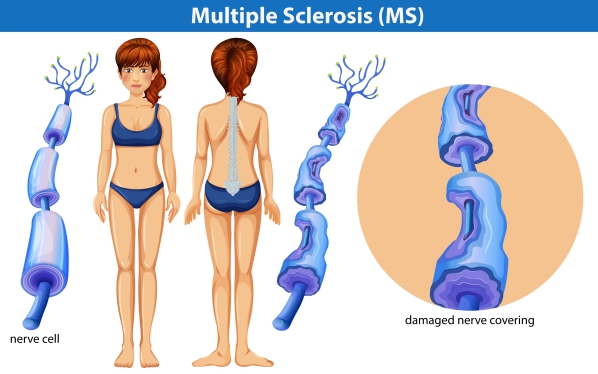What is Tourette syndrome?
Tourette syndrome (TS) is a common genetic neurological disorder which is characterized by chronic motor and vocal tics beginning before adulthood that cannot be easily controlled. For example, you may repeatedly shrug your shoulders, blink your eyes or make unusual sounds.
In the United States, it is estimated that 0.7-4.2% of children have some type of tic disorder. In addition, the Centers for Disease Control and Prevention (CDC) estimate that the prevalence of a lifetime diagnosis of TS is 3 cases per 1,000 population. Non-Hispanic white people are two times more at risk of developing TS than Hispanic and non-Hispanic black people. Furthermore, males are 5 times more at risk of developing chronic tics than females. The initial symptoms of TS usually show up between ages 2 and 15 years, with the average being 6 years of age.
Unfortunately, there is no cure for TS. However, there are treatments available to relieve the symptoms of TS. In addition, tics may be controlled after teen years in certain cases.
What are the causes and risk factors for Tourette syndrome?
The exact cause of TS is not known. However, it is suggested that chemicals (neurotransmitters) in the brain transmit nerve impulses, including serotonin and dopamine, may play a role in the development of TS.
Non-Hispanic white people are two times more at risk of developing TS than Hispanic and non-Hispanic black people. In addition, males are 5 times more at risk of developing chronic tics than females. The initial symptoms of TS usually show up between ages 2 and 15 years, with the average being 6 years of age. Furthermore, having a parent or sibling being affected by TS may increase your risk of developing the syndrome.


What are the signs and symptoms of Tourette syndrome?
The hallmark of TS are tics which are sudden, brief, intermittent movements or sounds. They can vary from mild to severe. When the symptoms of TS are severe, they can significantly affect activities of daily living, quality of life and interfere with communication. Tics and involve sounds (vocal tics) and movement (motor tics). In addition, tics can vary in type and severity and may occur during sleep. Furthermore, tics may change over time or worsen if you are stressed, ill, excited or tired. Tics can be classified as simple or complex. Simple tics involve a limited number of muscle groups while complex tics can involve several muscle groups.
Common simple motor tics in TS include:
- Head jerking.
- Eye blinking.
- Eye darting.
- Mouth movements.
- Nose twitching.
- Shoulder shrugging.
Common complex motor tics in TS include:
- Obscene gesturing.
- Hopping.
- Bending or twisting.
- Touching or smelling objects.
- Repeating observed movements.
- Stepping in a certain pattern.
Common simple vocal tics in TS include:
- Grunting.
- Barking.
- Throat clearing.
- Coughing.

Common complex vocal tics in TS include:
- Using vulgar or swear words.
- Repeating one’s own or others’ words or phrases.
There are some conditions which may resemble TS and these include:
- Akathisia.
- Autism.
- Chorea in adults.
- Complex partial seizures.
- Frontal lobe syndromes.
- Wilson disease.
- Neurologic effects of cocaine.
- Huntington’s disease.
- Intellectual disability.
- Neuroacanthocytosis.
- Mannerisms.
Making a diagnosis
To make a diagnosis, your doctor will first take a detailed history from you to know more about your symptoms. After the history taking, your doctor will perform a thorough physical examination to look for signs of TS. The diagnosis of TS is clinical, that is, a good history taking and physical examination are often enough to make the diagnosis.
For the diagnosis of TS to be made, the following criteria should be met:
- Presence of both motor and vocal tics, although not necessarily at the same time.
- Tics begin before the age of 18 years.
- Tics occur nearly every day or intermittently.
- Tics occur several times a day.
- Tics are not caused by medications or other medical conditions.
- Tics must change in complexity, type, severity, frequency or location.

What are the treatments of Tourette syndrome?
Unfortunately, there is no cure for TS. The treatments available are aimed at controlling tics that interfere with activities of daily living and functioning. The medications used to control tics or relieve the symptoms associated with TS include:
- Medications to block or reduce the amount of dopamine: Medications that are used to help control tics by blocking or reducing the level of dopamine include haloperidol, pimozide and risperidone amongst others.
- Attention Deficit/Hyperactivity Disorder (ADHD) medications: The medications used to treat ADHD such as methylphenidate or adderall can help to increase attention and concentration. However, in certain people, these medications may exacerbate the symptoms of TS.
- Botulinum injections: This injection is given directly into the muscle to relieve motor or vocal tics.
- Antidepressants.
- Antiseizure medications.
- Central adrenergic inhibitors: Medications such as clonidine which is typically prescribed for high blood pressure, may help to improve impulse control problems and rage attacks.
In addition to medications, there are several therapy which may help to improve your symptoms. Behaviour therapy including habit-reversal training may help you to monitor tics, identify premonitory urges and learn how to control the tics. Psychotherapy may help you to deal with other associated problems such as ADHD, depression or anxiety. Deep brain stimulation (DBS) involves implanting a battery0operated medical device in the brain to deliver electrical stimulation to targeted areas in the brain that control movement. DBS is usually used when severe tics do not respond to other treatment.

What are the complications of Tourette syndrome?
If TS is left untreated, the following complications may ensue:
- Pain related to the tics.
- Headaches.
- ADHD.
- Obsessive compulsive disorder (OCD).
- Depression.
- Anxiety disorders.
- Learning disabilities.
- Sleep disorders.
- Social isolation.
Expectations (prognosis)
Unfortunately, TS almost always persists throughout life. However, by the age of 18 years, approximately 50% of people are essentially free of tics. A majority of people with TS lead a fairly normal life but even mild tics can be distressing. Seeking medical advice early is important for you to learn more about the condition and learn how to cope with it before you start developing complications.

Source:
J. Alastair, I. and Simon, M., 2016. Davidson's Essentials of Medicine. 2nd ed. London: ELSEVIER.
Parveen, K. and Michael, C., 2017. Kumar & Clarks Clinical Medicine. 9th ed. The Netherlands: ELSEVIER.
Robertson, W., 2019. Tourette syndrome.
American Psychiatric Association. American Psychiatric Association: Diagnostic and Statistical Manual of Mental Disorders, 5th ed. Washington, DC: American Psychiatric Association; 2013.
Tamara P. Tourette syndrome and other tic disorders of childhood. Handb Clin Neurol. 2013. 112:853-6.
McHenry LC Jr. Samuel Johnson's tics and gesticulations. J Hist Med Allied Sci. 1967 Apr. 22(2):152-68.






